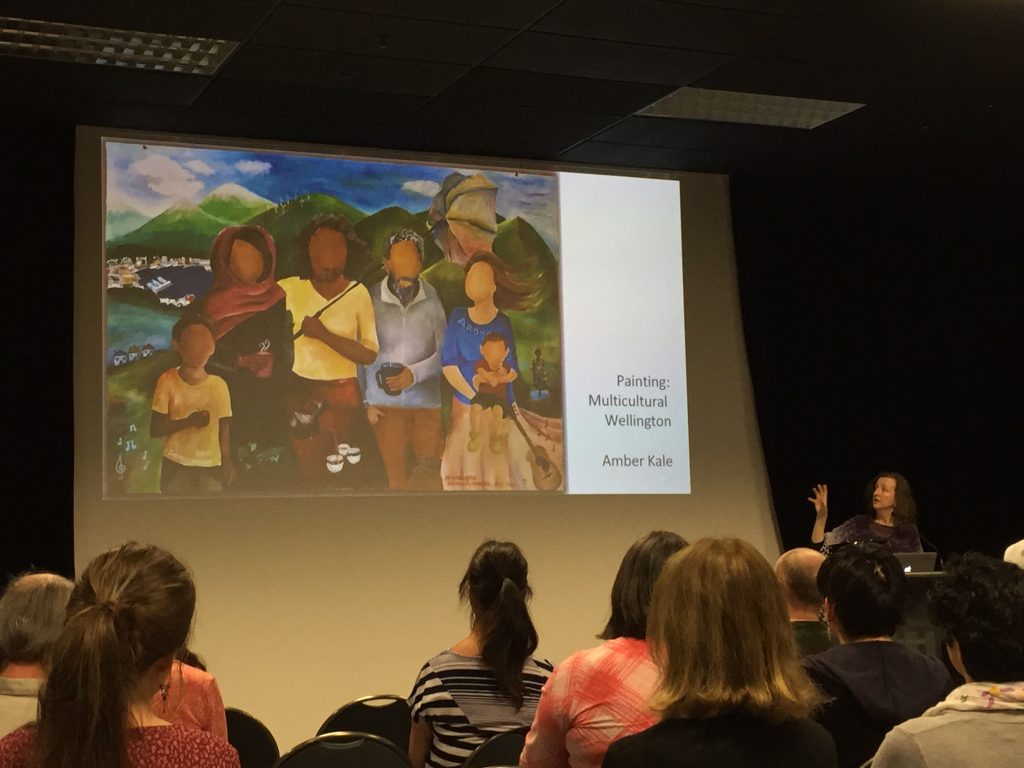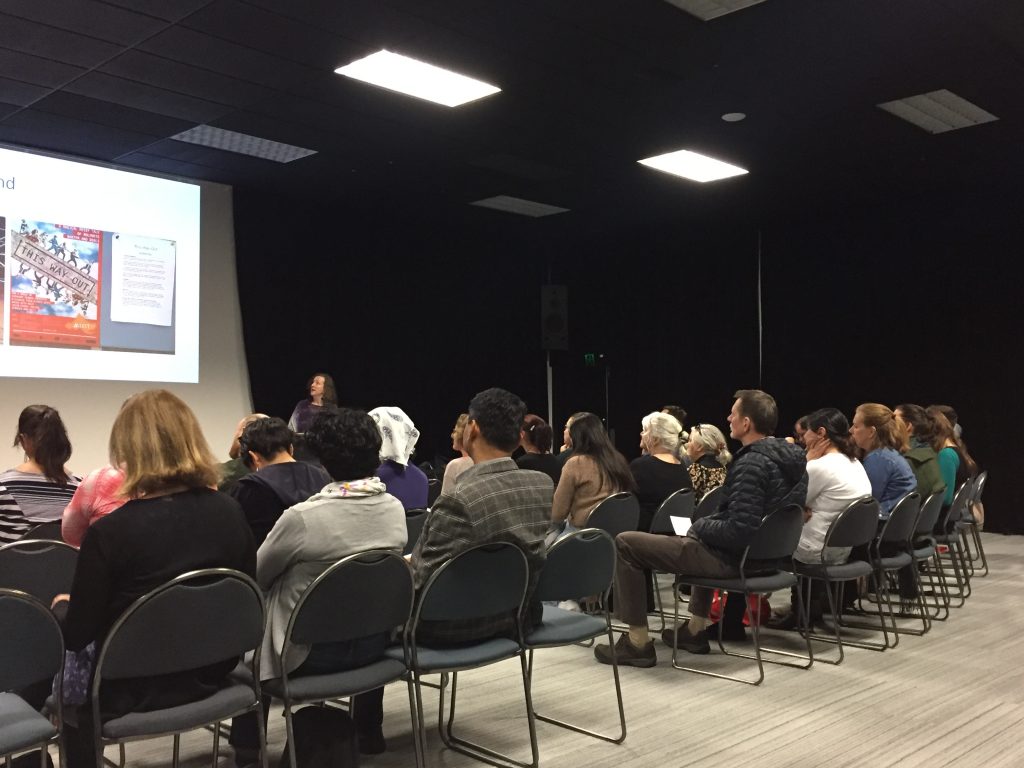Report by Neil Vallelly
In her second talk as Visiting Lecturer at the Centre for Global Migrations, Professor Sara Kindon introduced us to the benefits of participatory research in the context of refugee resettlement. Kindon illustrated how participation in community workshops and events fosters collective inquiry and creates alternative spaces for story-telling, which is especially important in refugee communities. As Kindon stated, “participatory research is carried out by local people rather than enacted upon them.” In doing so, it enables participants to be active in practices of meaning-making and to contribute productively to the shaping of social alternatives.
Kindon focused on arts-based participatory research, drawing on a huge number of examples from New Zealand and internationally. We witnessed the “mapping memories” project in Montreal, which provided young refugees the space to recount the stories of their displacement through a variety of artistic methods. Likewise, we were introduced to the idea of “body mapping” in South Africa, where participants use drawings of the body to tell their stories. Numerous examples from New Zealand included painting, diagramming, theatre, mixed media, dance, and puppetry. Through these examples, Kindon argued that arts-based participation can provide access to previously inaccessible spaces, both physical and psychological, through the articulation of bodies involved in collective activity. The humility of learning alongside others, Kindon observed, can provide a new orientation for the participants, introducing each member of the group to a new perspective on the world.
To exemplify the potential of arts-based research, Kindon invited audience members to draw an image without words that represented one of their core values. Audience members then shared these images with one another in small groups, with the other members of the group attempting to decipher the meaning of each image. What we learned as an audience is how meaning is always constructed in relation with others and, instead of treating refugees as objects of analysis, we can research alongside them to create a new and genuinely collective forms of knowledge.



